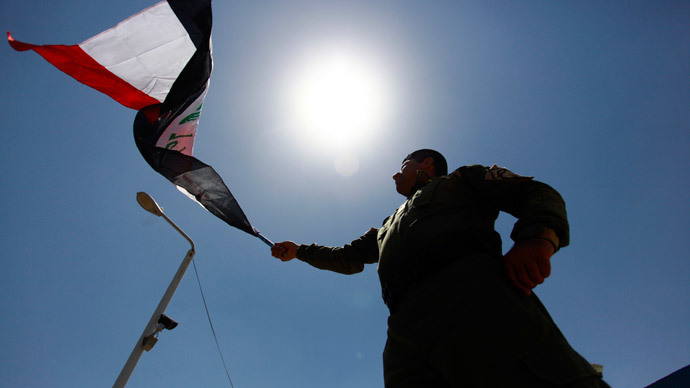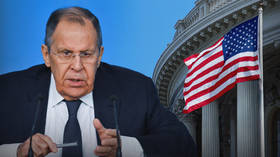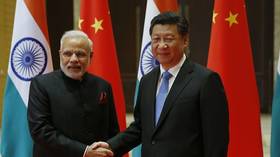‘Initiative in Iraq is with the Islamic State, not with Washington’

If the Islamic state doesn't have ambitions to go after Jordan or Baghdad, the Pentagon feels the US can live with Iraq as a weak mini-state, Brian Becker from the Answer Coalition told RT.
RT:According to a leaked classified US military report, sending advisers to Iraq would put them at risk from Islamists who are said to have infiltrated the Iraqi army. Does this give Washington a legitimate excuse for not helping Baghdad in its fight against the 'Islamic State' group?
Brian Becker: The Pentagon and perhaps the White House are seriously conflicted about what to do in Iraq because there is no easy solution. The US fractured Iraq, it fractured it along sectarian lines when it invaded it in March 2003, and then armed Shia and Sunni groups, used the Kurdish regional government as something of an extension of American power in that area, and it divided and then destroyed the Ba’athist army, the Iraqi Army, so they had to start from scratch. A major factor, a major sort of feature of any modern state is the ability of the ruling class of any society to control its army, and it’s clear that the Iraqi government does not control the Iraqi Army because it is now divided along sectarian lines.
RT:The US is calling for the formation of a unity government, saying this will help end the bloodshed. So does Washington see no future for the current cabinet?
BB: The country has become so fragmented because of the invasion of 2003 and then the resistance and the way the US government has a deliberate occupation strategy as a military strategy attempted to defeat the resistance, based on funding Shia groups, Sunni and Kurdish groups and having them fight each other. In other words, a classic page from the divide and conquer tactic, but now there is not much there. The Washington politicians can say to the Baghdad politicians “get it together, form a unity government”, but right now it’s not so simple because of the way the country has been fragmented. If Maliki desired to do it, maybe he can do it, but he is reliant completely on the most hard-lined Shia militia, that has been historically trained in Iran, so he doesn’t see any hope, any way to win over the Islamic State or others and he isn’t making much of an effort, he is hunkering down and the Washington options are very limited right now.

RT:To date, the US has spent some 25 billion dollars on equipment and training for the Iraqi army. Why, then, is Baghdad finding it so hard to defeat the Islamists?
BB: The current army lacks national cohesion; it’s not a coherent or cohesive force because of the sectarian fragmentation of the country. Again, the principle tactic of the occupation strategy by the US when it couldn’t defeat the armed resistance. So we have a situation now where these forces in Iraq are greater than forces of national coherence or cohesion. And you have the Islamic State which was again really funded and had arms funneled to it by Qatar, Saudi Arabia and Turkey, and of course behind the scenes the US in the past three years and they got strong in Syria. So now it’s like the sorcerer's apprentice, they have conjured up forces that they can no longer control, the unintended consequences of this completely reckless and criminal strategy are playing themselves out. And of course the Iraqi people and Iraq as a nation are the big losers.
RT:Iraq is on the brink of collapse. Why do you think Washington's not taking any decisive steps to help drive the 'Islamic State' group out of the country?
BB: I think what the Pentagon is determined is if the country is in de-facto partition, Baghdad is under control of the Maliki government, the central government, and the southern part, predominantly Shia part, is one part of the former Iraq. And then you have western north under control of the Islamic State. If they have only local ambitions, if they do not have ambitions to go after Jordan or take Baghdad, and then you have the Kurdish regional government in the north acting functionally as an independent government, I think that Pentagon feels well. Iraq was a fairly strong regional power, now it’s a weak mini-states, we can live with that.
The statements, views and opinions expressed in this column are solely those of the author and do not necessarily represent those of RT.
The statements, views and opinions expressed in this column are solely those of the author and do not necessarily represent those of RT.











